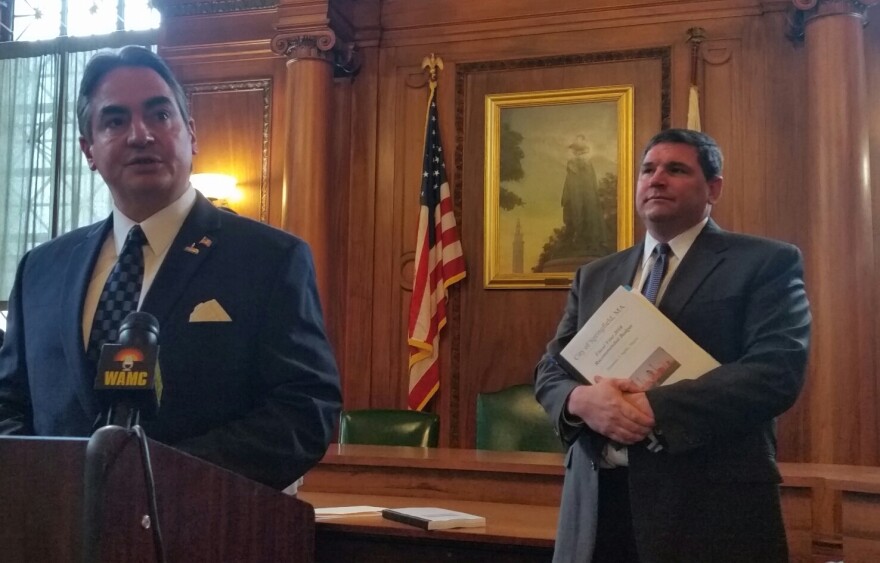More money is being put into the retirement system for public employees in the third-largest city in Massachusetts. But it will barely make a dent in what is the worst unfunded municipal pension liability in the state.
The city of Springfield is putting an additional $2 million this year into its retirement system under an agreement between the administration of Mayor Domenic Sarno and the City Council to increase already required contributions to the pension plan in an effort to reduce the large funding shortfall.
Sarno has said his administration takes the unfunded pension liability problem “very seriously” while at the same striking “a proper balance” when it comes to deciding how much to put into the retirement system each year.
"We are being as aggressive as we can, and the bond rating agencies appreciate that," Sarno said earlier this year as he released his proposed city budget for the fiscal year that started July 1, 2018. " But the more agressive you are with the pension payoff that means you have to take it away from the bottom line of the budget."
Springfield City Council President Orlando Ramos said the unfunded pension liability was a priority the council raised during budget hearings earlier this year.
The $2 million the City Council is scheduled to vote tonight to add to the pension fund is in addition to a roughly $40 million contribution the city previously committed to.
That will still leave the retirement plan just 27 percent funded, according to Springfield’s chief finance official T.J. Plante.
"This does not move the needle excessively," said Plante about the additional $2 million pension contribution. " But it sends the right message to Wall Street and everyone that we are taking ( the unfunded liability) problem very seriously."
At the start of the decade, the city’s pension account was nearly 55 percent funded. Then a large number of employees took offers of early retirement. The pension reserves were further eroded when the Great Recession hit 10 years ago and investment returns dropped sharply.
In 2016, Springfield struck an agreement with the Massachusetts Public Employee Retirement Administration on an annual payment plan that is to fully-fund the pension system by 2040.
The mayor and city council agreed this year to annually use part of any surplus cash left from prior fiscal years to overpay the required contributions into the retirement system.
"So the intent is we will stay with our pension schedule, which is very aggressive as it is, and then add in extra money to the extent we can every time we certify free cash," explained Plante.
Despite having the highest unfunded pension liability of any municipality in the state, Plante said Springfield is not at risk of failing to keep its obligations to its retired workers.
"The system is solvent enough that any retiree is going to get their retirement benefit and health insurance as agreed upon when they accepted their job and ultimately retired from the job," said Plante.
The city pays its share of health insurance premiums for its retirees on a pay-as-you-go basis, but is looking to build up a reserve fund to cover some of those annual costs.





